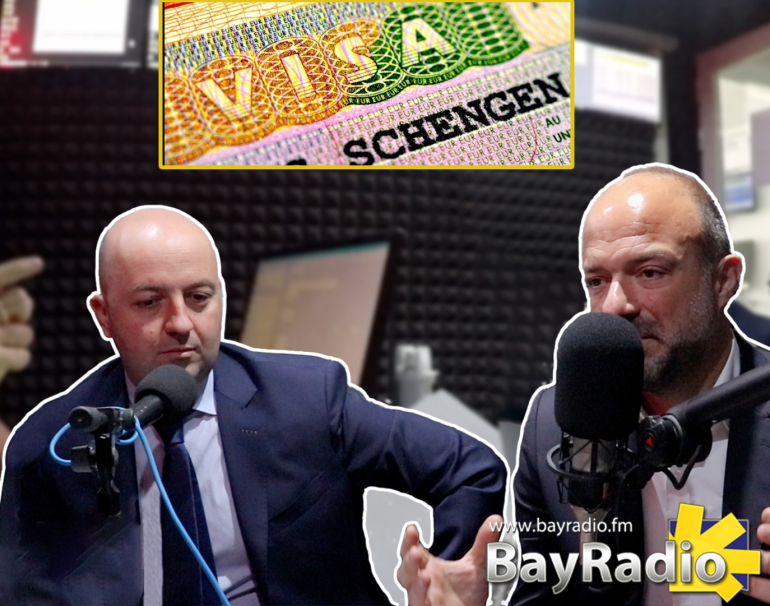-
 play_arrow
play_arrow
BayRadio Listen Live Broadcasting in Spain
What happens after Brexit day: the transitional period the UK enters when it leaves the EU on 31 January, explained

Now that the Brexit bill has been formally approved by Lords and MPs, the UK must turn it’s attention to the next stage of the complicated process – formulating a future agreement with the EU.
The Withdrawal Agreement Bill was passed in Parliament on Tuesday after the Lords, who had been trying to secure changes to it to protect EU nationals and child refugees, admitted defeat and accepted the draft legislation.
Celebrating the milestone, Boris Johnson claimed the UK is on the brink of crossing the “Brexit finish line” ahead of the official departure date on 31 January.
But Brexit is not exactly over, so to speak. In fact there is still quite a way to go.
What happens after the UK leaves the EU?
At 11pm on 31 January 2020 the UK will officially leave the European Union and cease to be a member state. Under the terms of the Withdrawal Agreement the UK will then enter a transitional period during which time the UK will abide by EU rules despite no longer being a member.
It will allow businesses and the government to prepare and adjust to new post-Brexit arrangements and was designed to prevent a sudden change to trade rules, laws, immigration and regulations which could have caused significant damage to both the UK and EU.
It is also necessary because the EU will not negotiate a post-Brexit deal with the UK while it is still a member state. The period, therefore, will be used to negotiate what the new UK-EU relationship will look like.
What will stay the same?
- EU citizens arriving in the UK, and UK citizens arriving in the EU, will enjoy the same freedom of movement rights.
- The UK will still be part of existing EU trade deals but will able to negotiate future trade deals.
- The UK would remain in the customs union and single market so it would be subject to EU regulations
- Security co-operation will continue between the UK and EU
- The UK will still be subject to EU law and the rulings of the European Court of Justice
- It will also effectively stay part of the Common Fisheries Policy
The Brexit legislation also specifies that, during the transition, there will be a special process for scrutinising any new EU laws made during this period.
This is because there will no longer be any British MEPs in the European Parliament, where EU law is approved. There will also be no UK commissioner, and UK ministers will no longer attend meetings of the EU Council.
If the European Scrutiny Select Committee of MPs or EU Select Committee of Lords decide that a new EU law “raises a matter of vital national interest” to the UK, it can ask for a debate on the issue in the House of Commons or the House of Lords. The government must then make time for that debate within 14 sitting days, but MPs are not able to stop those rules entering into force.
How long does this last?
The transition period is currently scheduled to end on 31 December 2020, which was the date agreed by former prime minister Theresa May.
It had initially been set to last around two years but, because the Brexit leave date has been delayed twice since Mrs May negotiated the initial deal, the transition period will now last 11 months.
The transition can, however, be extended once by up to two years, if the UK and EU jointly decide to do so before 1 July 2020. But Mr Johnson has been adamant he will not extend the transitional period.
He even included legislation in the Brexit bill which prevents a minister from agreeing any extension to the transition. Previously ministers had the power to agree an extension to the transition period, if the House of Commons had approved it, but this added section of the bill prevents it.
It is still in Parliament’s power to change the law, however. For this to happen it would require further primary legislation to be approves.
Then what?
As mentioned, the transition will be used by the UK and EU to agree on what the future trade agreement and relationship will look like. At the end of the transition this relationship will be shaped by whatever has been agreed in the 11 month period.
Mr Johnson has indicated he would prefer a relatively loose free trade agreement that would see the UK leave the single market and customs union.
If a deal is not reached on time the UK would resort back to international conventions for security and trade on WTO terms, which would be very similar to the terms of a so-called “no-deal Brexit”.
Northern Ireland, however, would be an exception as its goods trading relationship with the EU and would be covered by the provisions in the Northern Ireland protocol.
In terms of law, the UK would be able diverge from EU rules at the end of the transition period and would no longer be obliged to follow EU law.
Under the terms of the Withdrawal Agreement, citizens’ rights would continue to be protected even if a deal is not agreed by the end of December.
Written by: BayRadio News
Similar posts
Recent Posts
- Why does our cervicofacial lifting technique achieve a natural result?
- How Quirónsalud Torrevieja Hospital Has Positioned Itself at the Forefront of Advanced Traumatology
- Therapeutic advances usher in a new era in the fight against pancreatic cancer
- Quirónsalud Torrevieja Hospital celebrates 25 years of medical excellence, innovation and commitment to health
- Quirónsalud Torrevieja Hospital inaugurates the exhibition “ALTAS”, a tribute to patients and to 25 years of shared trust

Ctra. Cabo La Nao, CC La Nao, Local 6 03730 Javea, Alicante, Spain
Advertise with us
Do you have a business in Spain? Do you provide a service to the expat community in Spain? Would you like your message to reach over 500.000 people on a weekly basis?
BayRadio is a community orientated radio station offering fantastic content to our many listeners and followers across our various platforms. Contact us now and find out what Bay can do for you!
Our business is helping your business grow.
BAY RADIO S.L. © 2024. ALL RIGHTS RESERVED. WEB DESIGN BY MEDIANIC







